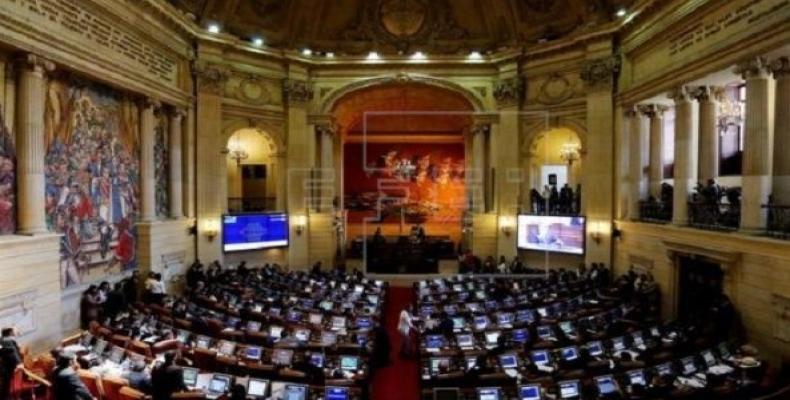Bogota, November 15 (RHC)-- The Colombian congress is meeting again to discuss over 160 proposals presented this week as the deadline for a decision on Colombia’s Special Jurisdiction for Peace is drawing near. Colombia’s Senate approved a post-conflict transitional justice system in March which would set the tone for prosecution cases for the hundreds of human rights crimes in the country’s 50-year civil war.
However, since then the issue has remained in a legislative limbo with a number of essential laws necessary for the realization of the peace agreement awaiting approval from authorities. The JEP decision is considered the backbone of the peace agreement between the government and the Revolutionary Armed Forces of Colombia reached in November 2016. The frequent delays have been criticized by the FARC as proof of the lack of will for real peace shown by the administration of Juan Manuel Santos.
The expiration date on Colombia’s judicial initiative “fast track” is November 30th. The United Nations, which helped to establish the peace agreement and monitored the demobilization of the FARC rebel group, is pressuring congressional members to maintain their side of the bargain which among other things will allow restitution for victims.
In its statement to the Colombian government, U.N. High Commissioner for Human Rights said it was the obligation of senators and representatives to uphold human rights, especially in the case of bringing peace and justice to millions of victims of war. Additional benefits for alleged offenders, thousands of whom stand to be tried for "war crimes," is an alternative to prison sentences provided they confess and make amends with victims, promising not to take up a life of violence.
The increase in assassinations of social and human rights activist as well as FARC members and their families, up to over 150 in 2017 alone has alarmed communities who face paramilitary terror in the areas left behind by FARC guerrillas.
Colombian Congress Debates Peace Bylaws as Deadline Nears

Matérias relacionadas
Comentários
Deixe um comentário
Todos os campos são requeridosMais vistas
- Presidente cubano visita municípios da província de Cienfuegos
- Díaz-Canel agradece apoio do corpo diplomático credenciado em Cuba
- Escândalo de criptomoeda envolve Milei
- Conheça Cuba, convite de livros na feira literária
- México abre as portas para médicos de Cuba e aumenta formação de profissionais da saúde

